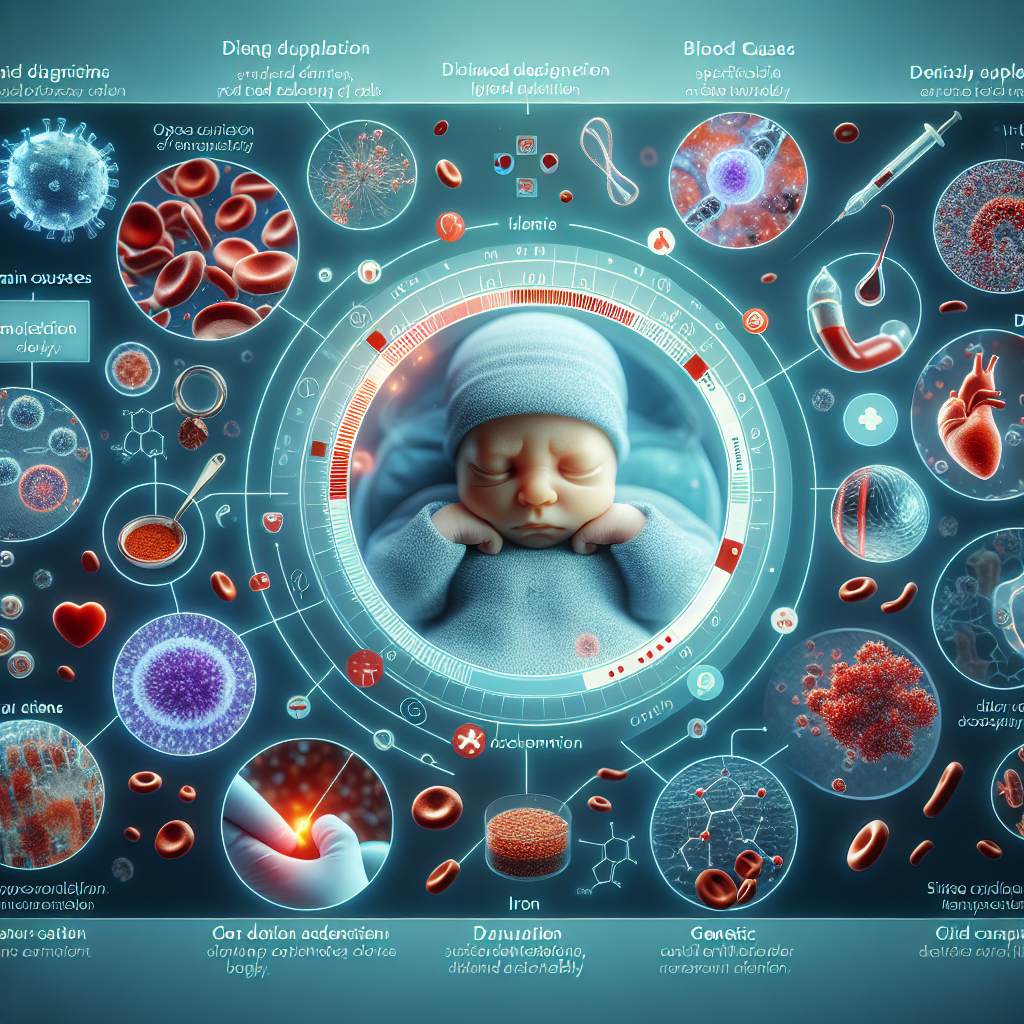Anemia in Babies: Causes and Effective Treatments
Becoming a parent comes with many responsibilities and challenges, including monitoring your baby's health. One of the conditions that young children can face is anemia. This article will explore what anemia is, what causes it, and how it can be effectively treated.
Understanding Anemia in Babies
Anemia refers to a decrease in the number of red blood cells or hemoglobin in the blood. Hemoglobin is essential for transporting oxygen in the body, and a deficiency can significantly affect the health of the baby.
Symptoms can range from lethargy and pallor to shortness of breath and lack of appetite. It is crucial to recognize these signs early and see a doctor for a correct diagnosis.
Causes of Anemia in Babies
Iron deficiency
One of the most common causes of anemia in babies is iron deficiency. Iron is a vital mineral for the production of hemoglobin. Babies are born with a store of iron, but this can become insufficient around 4-6 months of age. Exclusive breastfeeding or iron-fortified formula can prevent this deficiency.
Blood loss
Small blood losses, such as those from frequent bleeding gums or other internal bleeding, can contribute to the baby's anemia.
Malnutrition
Malnutrition or insufficient intake of essential nutrients such as vitamin B12 or folic acid can lead to anemia.
Transmission from the Mother
A rarer but possible cause is when the mother also suffers from anemia during pregnancy, which can affect the baby's iron levels.
Methods of Treating Anemia
Iron supplementation
The primary method of treatment is iron supplementation, which should be done under the guidance of a pediatrician. He will determine the appropriate dose according to the specific individual needs of the child.
Breastfeeding and Proper Nutrition
Continued breastfeeding and the introduction of iron-fortified cereals and iron-rich foods are essential measures to prevent and treat anemia.
Monitoring by Physician
It is crucial that babies diagnosed with anemia are regularly monitored by a doctor. In severe cases, more complex medical procedures may be required.
Motor Development
Anemia can have effects on the child's motor development. Due to lack of oxygen, low energy and reduced muscle viability, anemic babies may experience delays in achieving motor milestones such as sitting or walking.
Language development
Anemia can also negatively influence language development due to decreased energy and attention.
Conclusion
Monitoring the health and development of the baby is crucial for every parent. Recognizing the symptoms of anemia and intervening quickly with appropriate nutrition and supplementation strategies can ensure your baby has a healthy start in life.
If you suspect that your little one may suffer from anemia, do not hesitate to consult a pediatrician. Adequate iron stores and balanced nutrition are fundamental to robust development. For more resources and products to help you on this journey, explore the mother and baby section of our online store and subscribe to our newsletter for the latest news and helpful tips.














































































































































